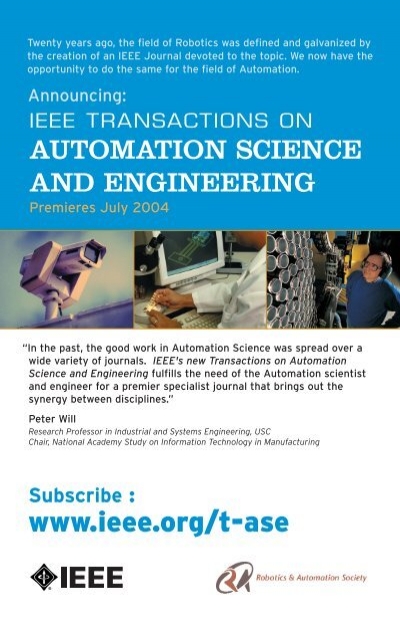基于减少迭代视界的全向轮式移动机器人约束预测学习控制
IF 6.4
2区 计算机科学
Q1 AUTOMATION & CONTROL SYSTEMS
IEEE Transactions on Automation Science and Engineering
Pub Date : 2025-03-13
DOI:10.1109/TASE.2025.3569611
引用次数: 0
摘要
提出了一种面向全向轮式移动机器人的预测学习控制器,其目标是在重复任务中实现所需轨迹的高精度跟踪。提出了一种基于“向未来学习”概念的预测机制,以加速学习收敛。此外,利用约束机制对输入差分引入约束,保证了学习的安全性。通过制定一个包含终端成本和约束的优化问题,实现了预测学习控制器下OWMR的稳定性,并通过基于复合能量函数的分析方法评估了OWMR跨迭代的性能。此外,采用降低预测视界的策略来减轻计算负担,既提高了预测学习控制器的适用性,又保证了预测学习控制器在实际应用中的初始可行性。随后,我们的预测学习控制器在OWMR上实现,并对其部署进行了一些实际讨论。对比仿真和实际实验验证了该方法的实用性和有效性,突出了其相对于现有方法的优势。从业人员注意:精确的轨迹跟踪控制是一项具有挑战性但又必不可少的任务,特别是对于移动机器人。本文提出了一种基于学习的控制器,通过重复任务的练习来提高性能。然而,传统的迭代学习控制器往往需要大量的重复操作,并且不能保证每次尝试的动态安全性。为了解决这些问题,引入了一种新的约束预测学习控制器,它不仅从历史经验中学习,而且在考虑输入约束的情况下预测未来的动作。此外,还引入了一种新的预测策略,以减少计算量。在全向移动机器人上进行了实验,验证了该预测学习控制器的有效性。本文章由计算机程序翻译,如有差异,请以英文原文为准。
Constrained Predictive Learning Control for Omnidirectional Wheeled Mobile Robots via Reducing Iteration Horizon
This paper proposes a predictive learning controller for an omnidirectional wheeled mobile robot (OWMR) with the target of achieving high-precision tracking of the desired trajectory within repetitive tasks. A prediction mechanism, based on the concept of “learning from the future,” is presented to accelerate learning convergence. Moreover, a constrained mechanism is leveraged to guarantee learning safety by introducing constraints on the input difference. The stability of OWMR under the proposed predictive learning controller is realized by formulating an optimization problem that incorporates terminal costs and constraints, together with its performance across iterations being evaluated through an analysis method based on composite energy functions. Additionally, a reducing prediction horizon strategy is adopted to mitigate computational burden, which both enhances the suitability and ensures the initial feasibility of the predictive learning controller for real-world applications. Subsequently, our predictive learning controller is implemented on the OWMR, together with several practical discussions for its deployment. Comparative simulations and real-world experiments are conducted to validate the practicality and effectiveness, highlighting its advantages over existing approaches. Note to Practitioners—Precise trajectory tracking control is a challenging but essential task, particularly for mobile robots. This paper proposes a learning-based controller that enhances performance through practice in repetitive tasks. However, traditional iterative learning controller often requires numerous repetitive operations and does not guarantee dynamic safety during each trial. To address these issues, a novel constrained predictive learning controller is introduced, which not only learns from historical experiences but also predicts future actions while accounting for input constraints. Furthermore, a new prediction strategy is incorporated to reduce computational burden. The effectiveness of proposed predictive learning controller is demonstrated through real-world experiments on the omnidirectional mobile robot.
求助全文
通过发布文献求助,成功后即可免费获取论文全文。
去求助
来源期刊

IEEE Transactions on Automation Science and Engineering
工程技术-自动化与控制系统
CiteScore
12.50
自引率
14.30%
发文量
404
审稿时长
3.0 months
期刊介绍:
The IEEE Transactions on Automation Science and Engineering (T-ASE) publishes fundamental papers on Automation, emphasizing scientific results that advance efficiency, quality, productivity, and reliability. T-ASE encourages interdisciplinary approaches from computer science, control systems, electrical engineering, mathematics, mechanical engineering, operations research, and other fields. T-ASE welcomes results relevant to industries such as agriculture, biotechnology, healthcare, home automation, maintenance, manufacturing, pharmaceuticals, retail, security, service, supply chains, and transportation. T-ASE addresses a research community willing to integrate knowledge across disciplines and industries. For this purpose, each paper includes a Note to Practitioners that summarizes how its results can be applied or how they might be extended to apply in practice.
 求助内容:
求助内容: 应助结果提醒方式:
应助结果提醒方式:


